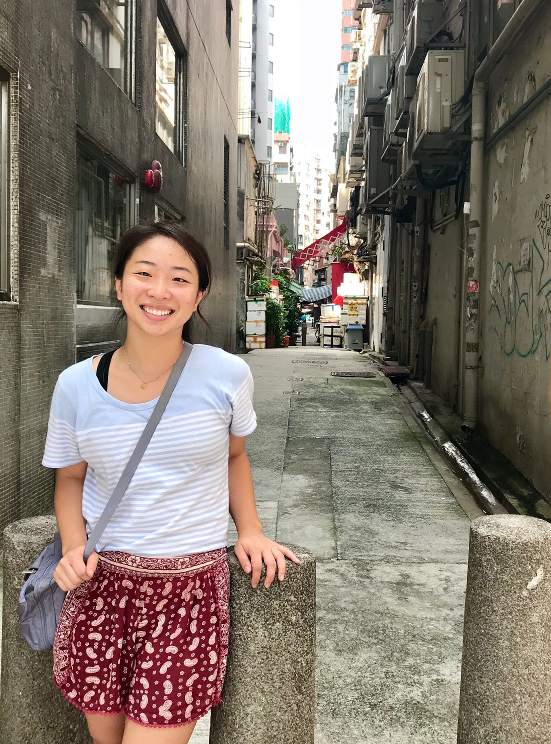

 I chose to study bioengineering because I really appreciated the hands-on aspect of this field. From conducting lab work, tinkering with electrical components, and working on my problem-solving capabilities, bioengineering challenges me everyday, which I love! I worked under Dr. Nagatomi and as an undergrad, I studied the effect of a 3D environment and ECM protein coating on urothelial tissue stratification in vitro. I chose to work with Dr. Nagatomi because of the wide range of projects we have in his lab, and through the last two years, I’ve had the opportunity to learn so much! I believe Clemson and specifically the close-knit bioengineering department have given me many opportunities for personal, professional, and intellectual growth. I’ve definitely taken advantage of the encouragement of many professors to expand our horizons and study outside the classroom as well—I studied cancer stem cells at the University of Tokyo thanks to Dr. Nagatomi and traveled to Tanzania to learn about medical equipment in developing countries with Dr. Dean and Dr. Desjardins! I’ve learned that my Clemson family is found all over the world! Upon my return I plan on pursuing higher education and a career in translational research.
I chose to study bioengineering because I really appreciated the hands-on aspect of this field. From conducting lab work, tinkering with electrical components, and working on my problem-solving capabilities, bioengineering challenges me everyday, which I love! I worked under Dr. Nagatomi and as an undergrad, I studied the effect of a 3D environment and ECM protein coating on urothelial tissue stratification in vitro. I chose to work with Dr. Nagatomi because of the wide range of projects we have in his lab, and through the last two years, I’ve had the opportunity to learn so much! I believe Clemson and specifically the close-knit bioengineering department have given me many opportunities for personal, professional, and intellectual growth. I’ve definitely taken advantage of the encouragement of many professors to expand our horizons and study outside the classroom as well—I studied cancer stem cells at the University of Tokyo thanks to Dr. Nagatomi and traveled to Tanzania to learn about medical equipment in developing countries with Dr. Dean and Dr. Desjardins! I’ve learned that my Clemson family is found all over the world! Upon my return I plan on pursuing higher education and a career in translational research.
All of this led to my year in Chengdu, China, as a United States David L. Boren Fellow. Boren Awards are sponsored by the National Security Education Program (NSEP), a major federal initiative designed to build a broader and more qualified pool of U.S. citizens with foreign language and international skills. My daily life usually consists of attending Advanced Mandarin class in the mornings and either a history/political science class in the afternoon, my internship, or meeting with language partners. I intern at a traditional Chinese medical clinic, learning about transcultural health practices and the mix of Eastern and Western Medicine. Chengdu is an amazing and growing city—some highlights have been visiting the Panda Research Institute and seeing this year’s group of baby pandas, trying authentic Sichuan hotpot (very spicy but delicious!), and learning to make many famous Sichuan dishes. Although I’ve been here for only two months (of an 11 month program), I’ve already noticed that many of the skills I acquired through Clemson have come in handy in China: problem-solving in day-to-day life, communication (especially due to the language barrier), and teaching locals a little bit about our healthcare system in the US and technological advances.